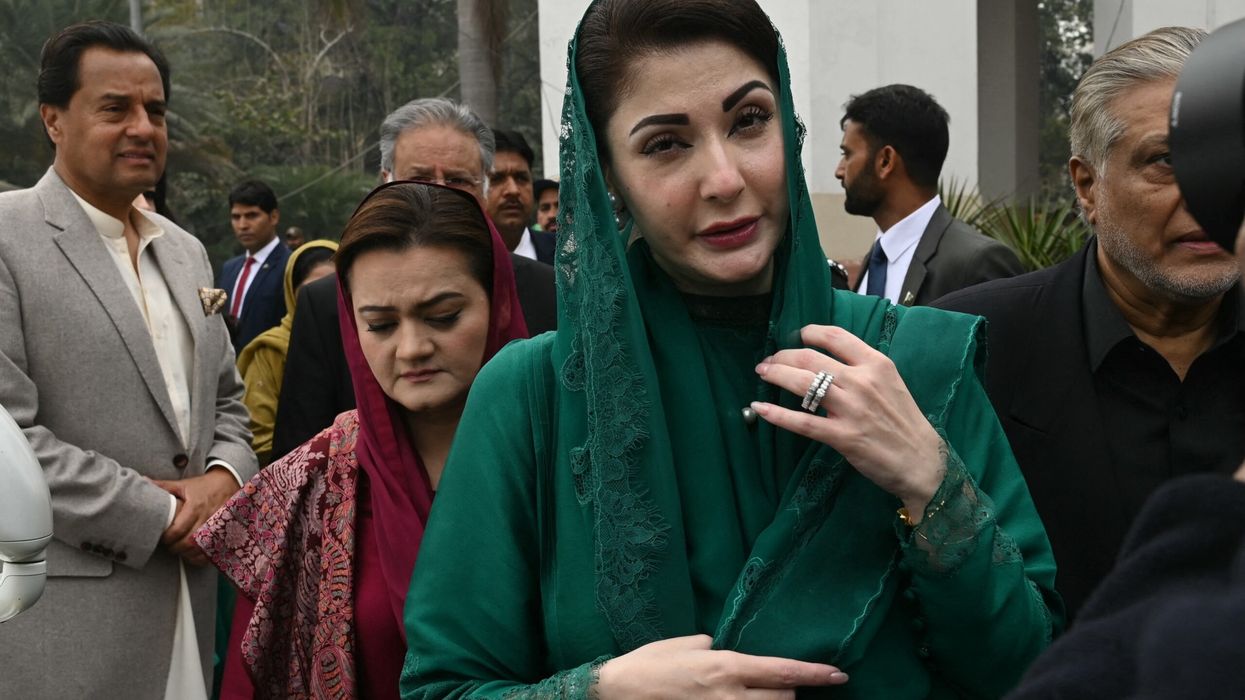Maryam Nawaz, the daughter of three-time former prime minister Nawaz Sharif, made history by becoming the first-ever woman chief minister of Pakistan's most populous Punjab province, a development described by her party as a "giant leap" for the country.
The 50-year-old senior vice president of the Pakistan Muslim League-Nawaz (PML-N) party, took oath as the Punjab chief minister at a ceremony at the Governor House in the presence of her father Nawaz Sharif and uncle Shehbaz Sharif on Monday (26).
She earlier won the chief ministerial elections amidst a walkout by lawmakers of former prime minister Imran Khan's party-backed Sunni Ittehad Council (SIC).
In her inaugural speech, Maryam said she has no desire for "revenge” against her political rivals who jailed her along with members of her family, including her father.
"I neither have a feeling of revenge or vengeance and my journey includes my arrest, my father's arrest, my mother's passing away," she said, indirectly referring to former Army chief Gen Qamar Javed Bajwa and former Supreme Court chief justice of Pakistan Saqib Nisar.
She thanked the opposition for making her go through all the ordeal which helped her reach the province's top office, referring to the jailed former prime minister Imran Khan, whose government incarcerated the Sharif family in corruption cases.
"On this occasion, I thank my late mother (Kulsoom Nawaz Sharif) too as she knowingly and unknowingly trained me for this day," said Maryam.
She said that the senior PML-N leaders including Nawaz and Shehbaz Sharif were her mentors.
"Today, every woman of the province is proud to see a woman chief minister," she said and hoped that the tradition of female leadership would continue in the future as well.
Maryam received 220 votes and won the chief ministerial elections for the politically crucial Punjab province, home to 120 million people. She defeated Rana Aftab of the PTI-backed SIC, who received no votes as his party boycotted the election.
A successor
Analysts suggest that Maryam is being groomed to succeed the Sharif brothers, who are in their 70s and have suffered ailing health.
Both served as Punjab chief minister before leading the country. Maryam's cousin Hamza Shahbaz also recently held the post.
Maryam is known for her fiery speeches and pulling large crowds but has not held a prominent public office before.
The 2024 general election was the first time she contested the polls, and she represented her father's Pakistan Muslim League-Nawaz.
She entered mainstream politics after 2017 when she and her father were found guilty of concealing assets, and they both served jail time before their convictions were overturned.
After her father left for London in late 2019 for medical treatment, she led a countrywide campaign to take on Khan's government, the country's powerful military and the judiciary, who she blamed for targeting her party and family.
She has faced deep criticism from opponents, including Khan, of dynastic politics in Pakistan. But has also been targeted for being a woman leader in the socially conservative Muslim nation.
"A woman with a mind of her own who does not conform to your ideas, who is good-looking, stylish and knows it; is that the problem?" said political commentator Marvi Sirmad, referring to the critical comments against her.
Born on Oct. 28, 1973 in the eastern city of Lahore into a wealthy industrialist family, she married Safdar Awan, an army officer who was serving as a personal secretary to his father in his second term as prime minister in 1992.
They have a son, two daughters, and a granddaughter.
She studied medicine but did not complete her degree, and later got a Masters in English Literature from Punjab University.
She played a key role in establishing her party's social media wing to combat Khan's digital presence and headed a youth affairs programme for her father when he was premier in 2013. (Agencies)




